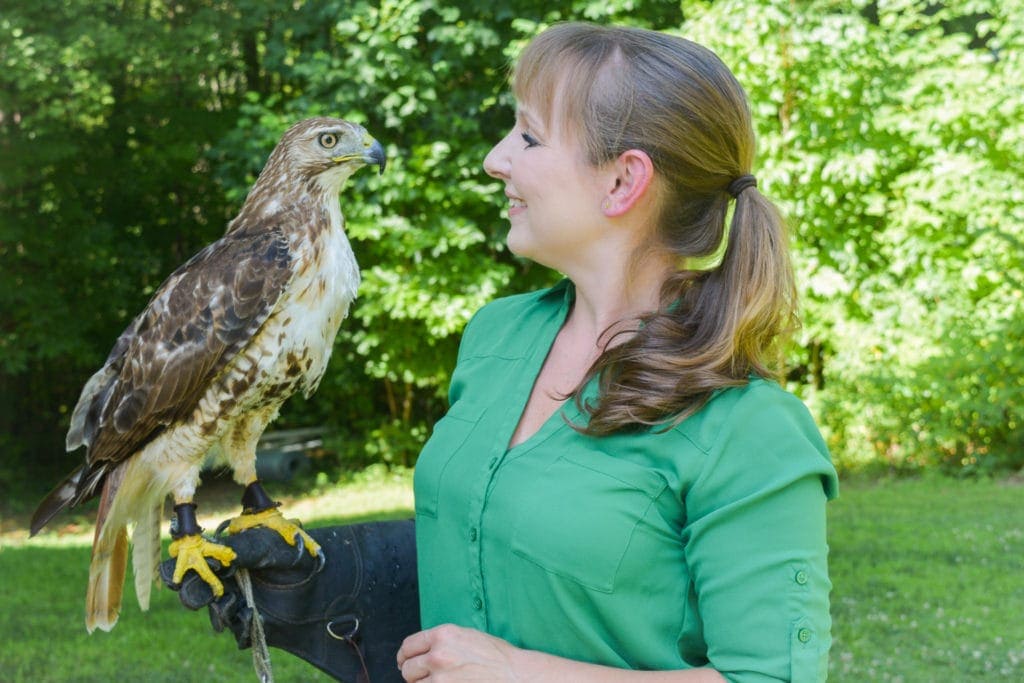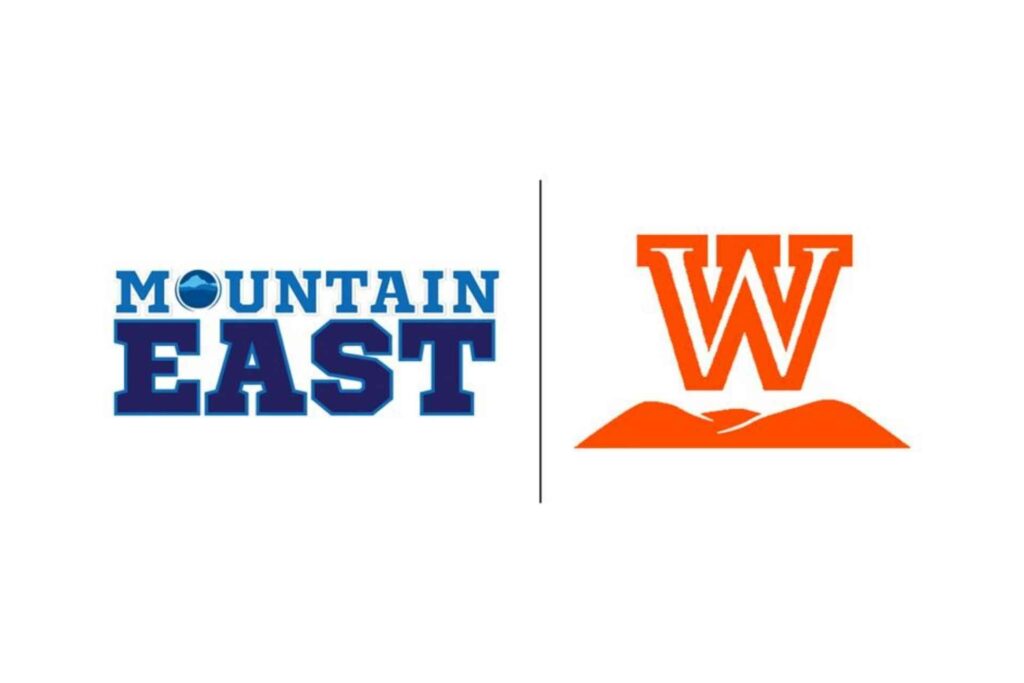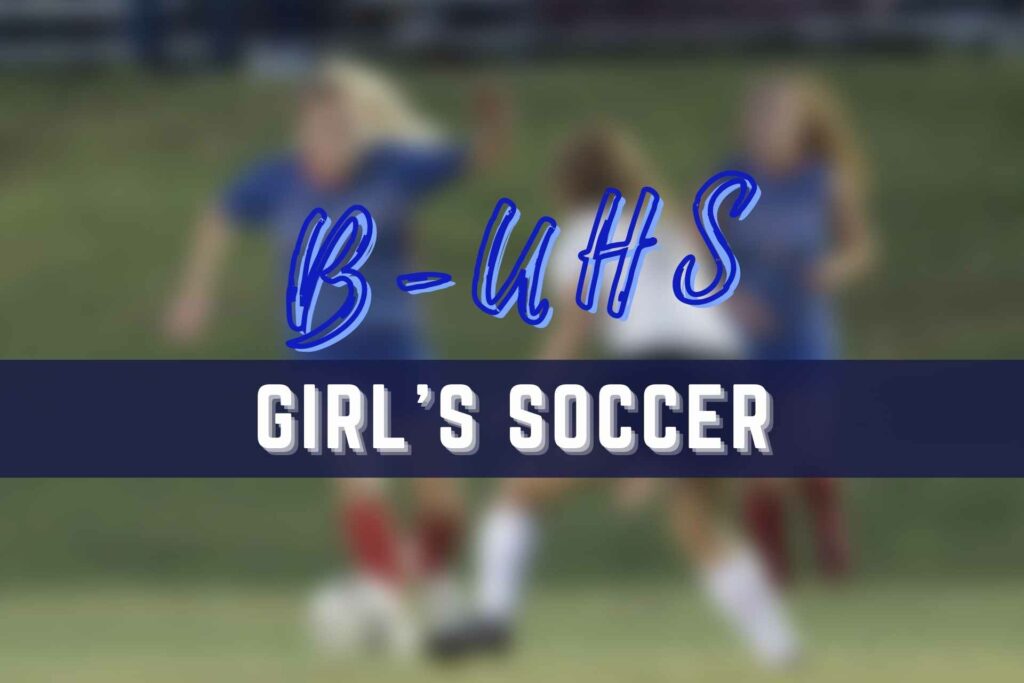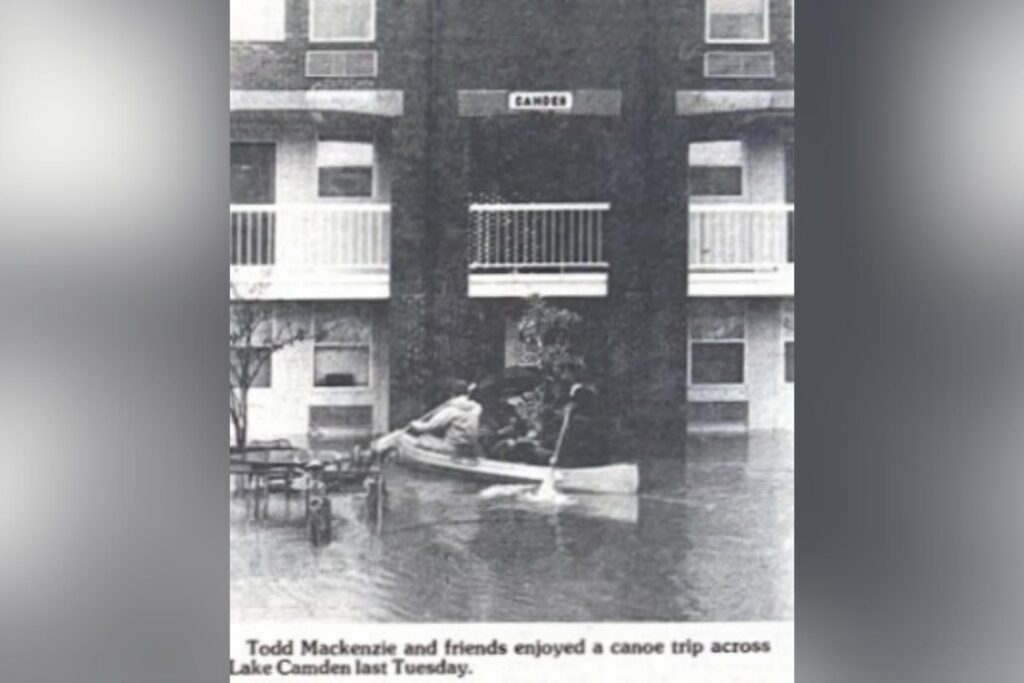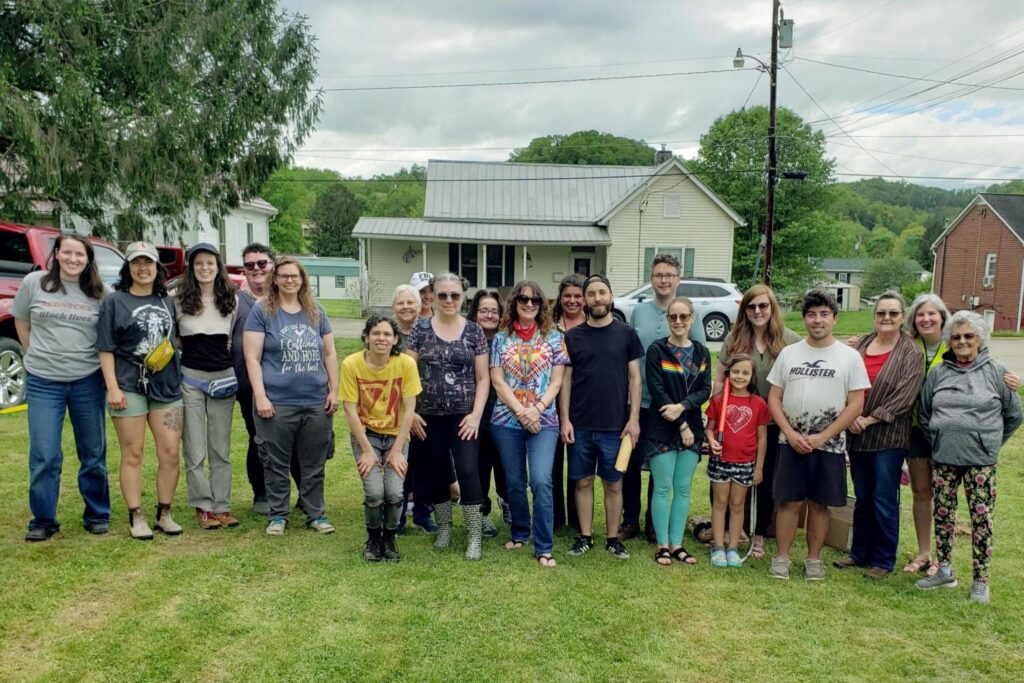BUCKHANNON – Buckhannon resident Heather McNemar practices a sport shared by few other West Virginia residents, and she recently completed writing a book telling about her adventures. “Squirrel Hawking in Appalachia” is a collection of falconry stories from the past season.
“A lot of falconry books focus on how to man the bird and get them to the point of hunting,” McNemar said. “I thought, there are not a lot of books on falconry based on continuing your relationship with your bird while you are in the field. I wanted to chronicle getting past the bird being ready to hunt.”
“I have a wonderful hawking partner and we hawked almost every day during hunting season to learn everything we could about squirrel hawking,” she added. “It’s really just a journal of all the stories during the season.”
“Squirrel Hawking in Appalachia” will appeal to those who are in their apprentice period of falconry, as well as anyone who would like to learn more about the sport. Falconry is the art of teaching a hawk how to hunt in cooperation with a person.

“The book would appeal to sportsmen and people who are curious about falconry and how it works,” McNemar said. “It’s a great book for falconers across the U.S. who want to learn how falconry works in West Virginia with our mountains. There is just a little bit for everyone in this book.”
Mags, a red-tailed hawk, is McNemar’s bird. Still a juvenile – she is still in her first year of life – Mags is referred to as a passage bird. McNemar said Mags is currently molting or dropping all her feathers, after which she will grow new ones.
“When a passage red-tail grows new feathers their first year, they come in red,” McNemar said. “That helps identify the bird. In falconry, when we trap red-tailed hawks to hunt, we can only trap passage birds.”
In the wild, first-year red-tailed hawks only have a 30 percent chance of surviving.
“So, when we take these first-year birds, we have a zero percent impact on the population,” McNemar said.
McNemar feeds Mags once daily, as the hawk is only allowed to hunt during the official seasons.
“We have to abide by the gun hunting seasons for falconry,” she said. “She can only hunt during squirrel season and during rabbit season. So, during the summer, I have to feed her every day.”
She said Mags eats squirrel, rabbit, day-old chicks, quail and a little bit of everything.
“When Mags and I hunt for squirrel, I freeze those for her and she eats them during the summer,” McNemar said. “Anything she catches in the fall and winter, we cut it up and freeze it, and she will eat that during the molt. So, she eats what she has caught.”
In order to practice falconry, the owner of the bird must have a falconry permit.
“There are about 60 registered falconers in West Virginia,” McNemar said. “There are around 30 of us who have licenses that are up to date and still practice.”
So, how does one become a falconer? McNemar said it is a process that takes a lot of time.
“You can get into falconry fairly cheaply, but it does take some time,” she said. “You write the Division of Natural Resources, and they send you a packet. It contains everything you need to get started. You study for an exam – a huge exam – for months and it takes about three hours to get through the exam.”
Once you pass the exam, you must find a sponsor who has been a licensed general or master falconer for more than two years and is willing to take you under their wing and help.
“There is a two-year apprenticeship program,” McNemar said. “You also need to build your facility and have the necessary equipment. The DNR comes out and inspects all of that and makes sure you have everything needed to properly care for a wild bird.”
She said if the DNR passes the hawk house, called a mew, then you are permitted to trap your first bird.
“As an apprentice, you are allowed to trap a passage red-tailed hawk or an American kestrel, which is a small falcon,” McNemar said. “Those are the two birds you can fly during your apprenticeship.”
Once you train a bird, you can release it back into the wild and they will become wild again.
“Following the two-year apprenticeship, if your sponsor feels you are ready, you can get your general falconry permit. This allows you to fly other birds, such as a Cooper’s Hawk,” she said.
McNemar said this is her fourth year in falconry – she earned her general permit last year. She prefers to fly red-tailed hawks.
“They are my favorite – my two favorite raptors are red-tailed hawks and golden eagles,” she said. “I plan on always flying a red tail.”
She said another consideration in falconry is the available game the bird can hunt.
“Around here, we basically have squirrels and rabbits,” she said. “A red-tailed hawk makes the most sense for me.”
McNemar shared how she got into falconry.
“I saw some videos of Mongolians hunting golden eagles on foxes,” she said. “It was one of the most incredible things I have ever seen. Watching the eagle coming down on the tundra and gaining speed and getting the fox was an amazing thing to see. The Mongolians have a very close relationship with the birds they fly, and I wondered if it was even legal in the U.S.”
So, McNemar said, “Google for the win.”
“I Googled it and learned I could do this in the U.S.,” she said. “It’s legal in most U.S. states, and I reached out to the West Virginia Falconry Club, and they helped get me started. I was lucky enough to find a sponsor in Fairmont.”
She said she enjoys squirrel hawking because she loves getting outdoors and spending time with the bird.
“I love the relationship you develop with the bird you are flying,” McNemar said. “You weigh your bird every day and learn their metabolism and what you need to help them maintain or get to a certain weight – it’s a science.”
Another aspect is one she terms “mystical.”
“It’s when you get to develop a relationship with a wild animal,” she said. “The coolest part, to me, is when I toss Mags into a tree and all of our training has come together and she trusts me, and she knows if she hunts with this woman, she is going to get fed.”
McNemar said when they are hunting, Mags is free-flying.
“If she didn’t want to come back, she could just leave,” she said.
McNemar feels falconry is a very misunderstood sport and hopes her book can help bridge the gap.
“People don’t know about it and sometimes people consider it a blood-thirsty sport,” McNemar said. “But really, what you are doing is being there for something that would happen in the wild anyway. So, when I go out and hunt with Mags, she could have just as easily gotten that squirrel with or without me. It’s just really cool to be a part of something that happens every day in the wild.”
“It’s a great way to conserve these birds of prey as well,” she added. “Falconers take very good care of their birds. A passage red-tailed hawk only has a 30 percent chance of survival their first year. When we trap these birds from the wild, we are taking them in and teaching them how to hunt better. Whether Mags gets a squirrel or not, she is getting fed. She is getting medical treatment, so it’s a really good conservation effort when we are taking these birds in and teaching them to hunt.”

“Squirrel Hawking in Appalachia” is currently available online at www.mcnemarhouse.com.
“In the future we hope to get the book into some local stores, but now it’s only available online,” McNemar said. “Squirrel Hawking in Appalachia” has been available for about two weeks.
Want to learn more about McNemar’s book and falconry adventures? The Upshur County Public Library is hosting a book discussion and signing for “Squirrel Hawking in Appalachia” Aug. 20 from 7 to 8:30 p.m.
